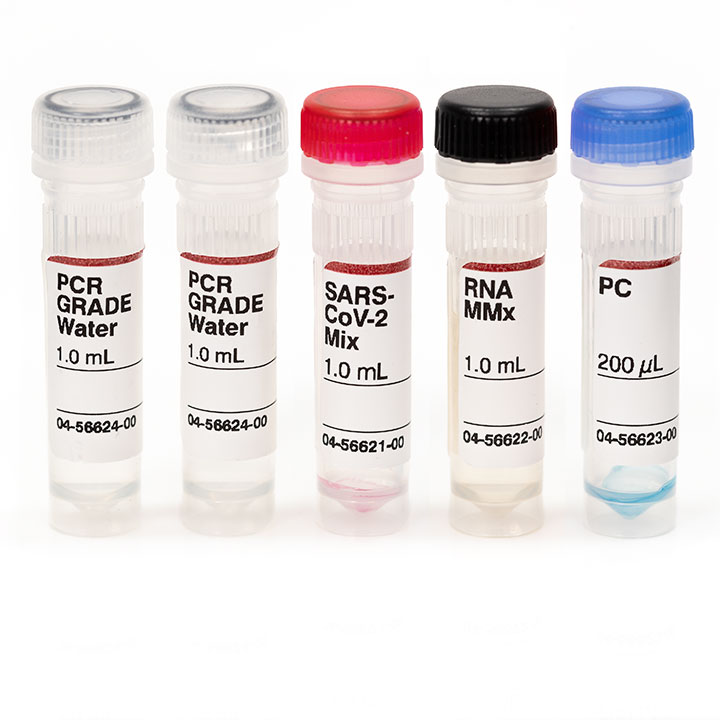
Water SARS-CoV-2 RT-PCR Test
![]()
Public health studies have shown that testing waste water for SARS-CoV-2 is an important epidemiological tool during the COVID-19 pandemic.1,2
The Water SARS-CoV-2 RT-PCR Test is a real-time reverse transcription polymerase chain reaction (RT-qPCR) test that detects and quantifies RNA from the SARS-CoV-2 virus in untreated waste water. Supported by an industry leader with over 20 years of experience manufacturing waste water testing kits, public health departments, researchers, and laboratories can confidently deliver consistent results to help protect their communities.3
Overview
Validated
- Validated protocol by manufacturer of market-leading waste water tests, including the Colilert/Quanti-Tray method
- Built-in protocol flexibility for a highly dynamic matrix
- Validation on common RT-qPCR instruments3
Consistent
- Highly sensitive RT-qPCR test, with detection of the N1 and N2 regions of the virus3
- Comprehensive quality-control protocols to ensure consistent results
Available
- A history of an excellent supply chain: IDEXX Water has greater than 99.9% availability for key products3
- Sterile and consistent manufacturing facilities, compliant with ISO and GMP standards
- Technical support staff with decades of experience in waste water
How to use
Concentration
RNA Extraction
Real-time PCR
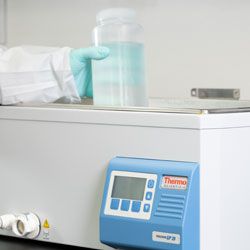
Step 1. Pasteurise the sample at 60°C for 1.5 hours. This step is optional.
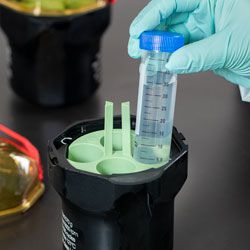
Step 2. Concentrate the sample using PEG precipitation or equivalent.
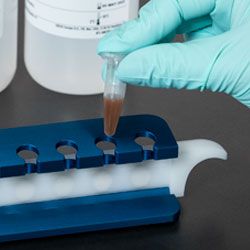
Step 3. Extract the RNA using the Water DNA/RNA Magnetic Bead Kit.
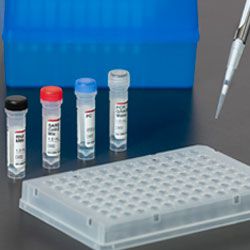
Step 4. Amplify the purified nucleic acids using the Water SARS-CoV-2 RT-PCR Test.
Product inserts and supporting documents
Learn more about the Water SARS-CoV-2 RT-PCR Test
Fill in the form below and one of our water testing specialists will contact you to discuss our simple solutions for protecting public health.
Frequently asked questions
Raw waste water that has not been chemically treated.
The Water SARS-CoV-2 RT-PCR Test is a real-time reverse transcription polymerase chain reaction (RT-qPCR) test that detects and quantifies the viral RNA in an appropriately prepared waste water concentrate sample.
When used with the 105 ml concentration protocol, the lowest concentration of SARS-CoV-2 in waste water that can be detected by the Water SARS-CoV-2 RT-PCR Test is approximately 1 gene copy/1 ml.
The IDEXX-validated protocol concentrates the SARS-CoV-2 virus from 105 ml of waste water. Laboratory staff may analyse larger or smaller water volumes by performing the basic procedure scaled for different input volumes with appropriate centrifugation equipment.
The Water SARS-CoV-2 RT-PCR Test analyses 5 µl of extracted RNA prepared from a waste water concentrate sample, although we recommend having additional volume on hand to account for pipetting loss and duplicate samples.
The IDEXX-validated protocol concentrates the waste water sample using a combination of centrifugation and polyethylene glycol (PEG) precipitation and can be modified to meet your specific laboratory needs. Other concentration methods may also be used, such as ultrafiltration, manifold filtration, etc. These methods should be validated to verify performance.
Maintaining a cold sample temperature helps to prevent sample degradation and ensure efficient precipitation of the SARS-CoV-2 virus.
The Water SARS-CoV-2 RT-PCR Test has been validated for use with the Water DNA/RNA Magnetic Bead Kit for extraction of nucleic acids, including SARS-CoV-2 RNA, from a waste water concentrate. The magnetic bead kit can either be run manually or performed using an automated magnetic processor. See product insert for additional details.
For each set of waste water samples tested with the Water SARS-CoV-2 RT-PCR Test, a PCR positive control, a PCR negative control, an extraction positive control, and an extraction negative control should be analysed at the same time. A method control should also be performed to verify expected results.
Please refer to the product inserts for recommended storage conditions at time of product receipt and after reconstitution/first use.
The US Centers for Disease Control and Prevention (CDC) indicate that a biosafety level 2 (BSL-2) laboratory with additional precautions can be used for environmental sample testing, including handling and processing waste water samples associated with SARS-CoV-2. Specific guidance is available from the US CDC: Interim Laboratory Biosafety Guidelines for Handling and Processing Specimens Associated with Coronavirus Disease 2019 (COVID-19).4
Consult your local health authority for specific recommendations.
Follow local health authorities’ recommended procedures for handling and processing of waste water samples associated with SARS-CoV-2. One source of information is published by the US CDC: Interim Laboratory Biosafety Guidelines for Handling and Processing Specimens Associated with Coronavirus Disease 2019 (COVID-19).4
Follow all local regulatory and safety guidelines.
An optional heat treatment process may be used to inactivate samples through pasteurisation, if desired. See the product insert for an example.
A pasteurisation step may reduce SARS-CoV-2 RNA detection. Please contact an IDEXX account representative for additional information.
Dispose of all samples and materials in accordance with local regulatory guidelines.
The Water SARS-CoV-2 RT-PCR Test is not US EPA approved for testing for SARS-CoV-2 in waste water. The US EPA does not currently regulate SARS-CoV-2 waste water testing or approve testing methods for this purpose. Testing for SARS-CoV-2 in waste water may or may not be regulated by your local and/or municipal authorities. Please check for regulations that may apply in your area.
Learn more about the Water SARS-CoV-2 RT-PCR Test
Water Customer Support
Australia & New Zealand Head Office
IDEXX Laboratories Pty Ltd.
Unit 6, 38-46
South Street
Rydalmere, NSW 2116
AUSTRALIA
Phone (AUS): 1300 44 33 99
Phone (NZ): 0800 838 522
Fax (AU): 1800 634 409
Fax: (NZ): 0800 448 443
Water International
Australia
Brazil
Canada
China
France
Germany
Italy
Japan
Latin America
Spain
Taiwan
United Kingdom
ISO Certifications
References
- Wurtzer S, Marechal V, Mouchel J-M, et al. Evaluation of lockdown impact on SARS-CoV-2 dynamics through viral genome quantification in Paris wastewaters [preprint posted May 6, 2020]. medRxiv. doi:10.1101/2020.04.12.20062679
- Medema G, Heijnen L, Elsinga G, Italiaander R, Brouwer A. Presence of SARS-Coronavirus-2 in sewage [preprint posted March 30, 2020]. medRxiv. doi:10.1101/2020.03.29.20045880
- Data on file at IDEXX Laboratories, Inc. Westbrook, Maine USA.
- Centers for Disease Control and Prevention. Interim laboratory biosafety guidelines for handling and processing specimens associated with Coronavirus Disease 2019 (COVID-19). www.cdc.gov/coronavirus/2019-ncov/lab/lab-biosafety-guidelines.html. Revised June 3, 2020. Accessed July 7, 2020.